Switzerland joins debate about removing controversial memorials
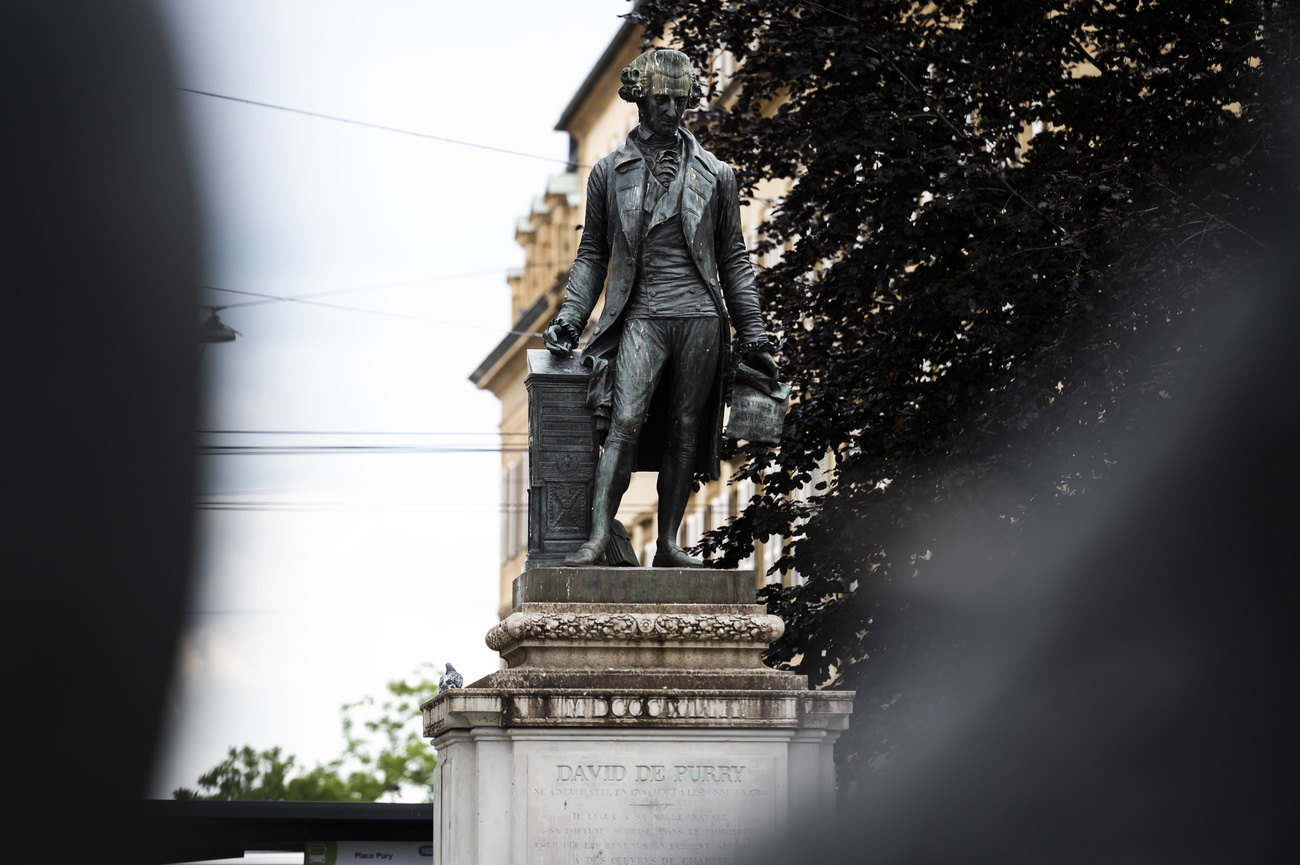
Global anti-racism protests following the death of George Floyd have reignited the debate about contentious monuments in the United States and Europe. In Switzerland, links to the slave trade, statues and even a mountain peak are under the spotlight.
In the US, Britain and Belgium, a number of controversial statues have been torn down by protestors, removed by local authorities or defaced (see infobox below) as nations grapple with their colonial pasts and racism in the wake of Floyd’s death. The black man died in Minneapolis, US, on May 25 after a police officer kneeled on his neck.
In Switzerland, over 2,000 people have signed an online petitionExternal link calling for the removal of the bronze statue of David de Pury from the centre of Neuchâtel in northwest Switzerland.
The “Collectif pour la memoire”, which launched the petition on June 8, says the wealthy entrepreneur and benefactor who died in 1786 made his fortune through investments and trading in precious wood and diamonds in Brazil. But it says his money was amassed via the exploitation of African slaves.
De Pury, who was born in Neuchatel and died in Lisbon, Portugal, is well-known in the Swiss city. He donated the equivalent of CHF600 million ($636 million) which was used for local charity initiatives and the construction of the town hall, a hospital and a school. His name features on a local square.
‘Educational’ action
The campaigners demand the city replace De Pury’s statue with a commemorative plaque in honour of victims of racism. They say the aim of the petition is educational and not to re-write history.
“We want this aspect of Neuchâtel’s history to be taught at school,” Mattia Ida, told Swiss public television, RTS, on Wednesday.
It’s a complex issue, said Geneva Graduate Institute professor Mohamed Mahmoud Mohamedou.
“Sterilising history is never a good idea,” he told Swiss TV. “There needs to be a public debate. I see that the Mayor of London has just created a commission to review all the statues in the city – that’s the kind of democratic engagement we need.”
This is not the first time that Neuchâtel has been caught up by the issue of race and memorials. In 2018 the city decided to rename Espace Louis-Agassiz, a street running through the local university district, to distance itself from the famous 19th-century Swiss-American glaciologist who was also an outspoken racist. It was renamed the road Espace Tilo Frey after a Swiss-Cameroonian who became the first woman to be elected to the cantonal parliament and to the House of Representatives in Bern.
But Agassiz is back in the Swiss news. Campaigners have written to local authorities calling again for the renaming of the Agassizhorn mountain in the Bernese Alps. A parliamentary motion is also due to be filed in Bern in the coming days. A similar demand was rejected by politicians and towns in the past.
Not a colonial power
The Swiss government has always made the case that Switzerland as a nation state has never been involved in slavery nor been a colonial power.
However, over the past 10-20 years a number of Swiss historians have delved into the issue. They say Swiss trading companies, banks, city states, family enterprises, mercenary contractors, soldiers and private individuals all profited from the slave trade. Specific Swiss links to the slave trade, some of which predate nationhood, are documented on the websites louverture.chExternal link and https://www.cooperaxion.ch/External link.
Amid the global anti-racism movement, members of the public and the media are turning their attention to other Swiss figures. “And what about the pompous statue of Alfred Escher on Zurich’s Bahnhofplatz?” asked the news platform Watson.ch on June 11. Alfred Escher was a well-known Swiss industrialist, politician and railway tycoon, who founded the Schweizerischen Kreditanstalt (SKA) bank, today Credit Suisse, and was also vice president of today’s Federal Technology Institute ETH Zurich. Between 1815 and 1845, his family owned a coffee plantation in Cuba where slaves worked, as German historian Michael Zeuske found out.
“We should perhaps think about whether the Alfred Escher statue would not be better off in a museum,” Swiss historian Hans Fässler told Watson.ch.
“It’s about weighing up his immense influence on modern Switzerland and the slave blood. At least an additional plaque should be attached drawing attention to the dark sides of his success.”
In December 2019, Fässler, backed by dozens of public figures launched a committee that makes the case for slavery reparations in the context of Switzerland.
The supporters the Swiss Committee on Slavery Reparations (SCORES) believe that reparations must be negotiated through dialogue between those who benefited from the transatlantic slave trade and the descendants of the victims.
United States
President Donald Trump has ruled out renaming US military bases that are named for Confederate leaders on Wednesday. Meanwhile, NASCAR banned the Confederate flag from its races and Democrats sought the removal from Capitol Hill of statues of people representing the pro-slavery South in the 1860s Civil War.
Meanwhile, protesters in Portsmouth, Virginia, defaced a Confederate monument and toppled parts of the statue of Confederate President Jefferson Davis.
Virginia Governor Ralph Northam last week ordered the removal of a statue of Confederate General Robert E. Lee, although a judge has since blocked the order.
Protesters in Richmond, Virginia, have toppled a statue of Confederate General Williams Carter Wickham and have torn down a statue of Christopher Columbus, set it on fire and threw it into a lake. Protesters have pulled down a Colombus statute outside the Minnesota State Capitol. Boston says it will dismantle a vandalized statue Columbus.
Philadelphia took down a statue of Frank Rizzo, a former mayor and police commissioner, and Dallas took away a statue at its airport of former Texas Ranger Captain Jay Banks, both of whom critics note supported actions that abused people of colour.
Several universities and towns in the South renamed buildings and roadways titled after leaders of the Confederate movement, which defended slavery. The US Marine Corps has banned public displays of the Confederate flag at its facilities. Birmingham, Alabama, removed a Confederate monument last week.
Britain
A statue of a 17th-century slave trader Edward Colston that was toppled by anti-racism protesters in Bristol, England, has been fished out of the harbour by city authorities. The council says it has been taken to a “secure location” and will end up in a museum.
A statue of Robert Milligan, an 18th century slave trader, was removed from its plinth outside a London museum.
Protestors in Oxford have called for the removal of a statue of 19th century British colonialist Cecil Rhodes.
Poole council in southern England said it would remove a statue of Robert Baden-Powell, founder of the worldwide scouting movement.
Belgium
An internet petition has been launched to rid the capital, Brussels, of any statue of Leopold II, the king of the Belgians. Statues of Leopold have been defaced in a half-dozen Belgian cities.
In the port town of Antwerp, where much of the Congolese rubber, minerals and other natural riches entered the nation, one statue was burned and had to be removed for repairs.

In compliance with the JTI standards
More: SWI swissinfo.ch certified by the Journalism Trust Initiative








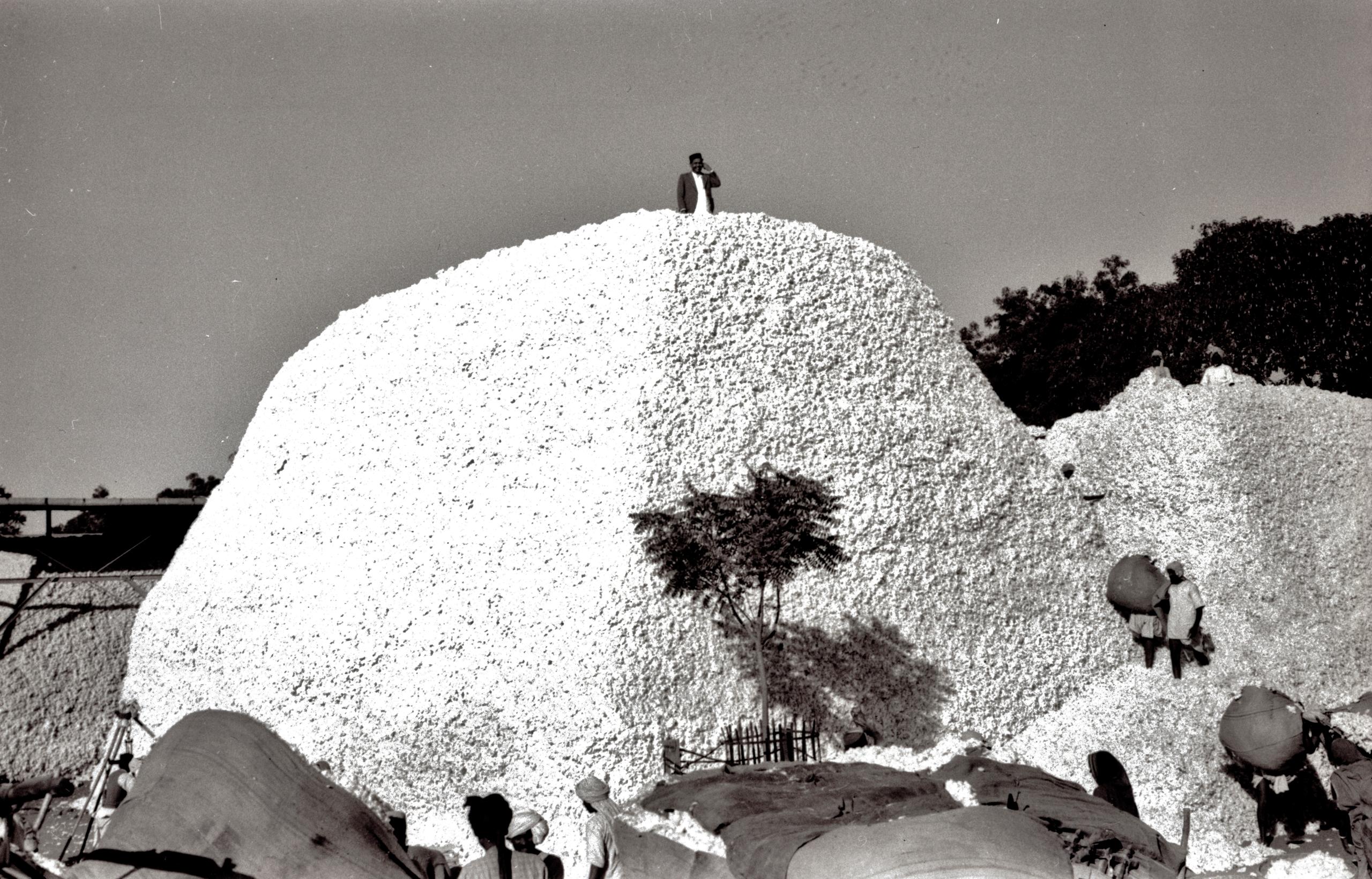
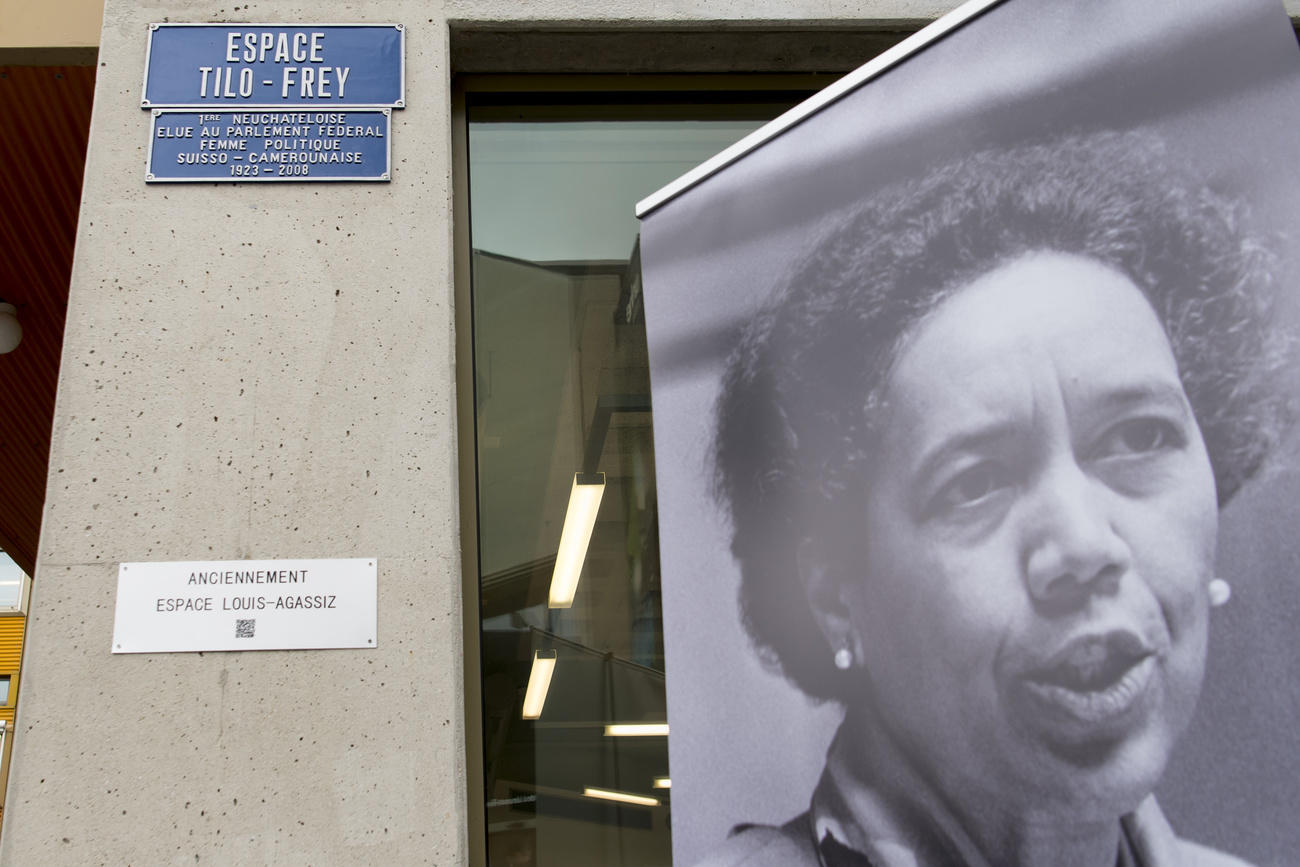
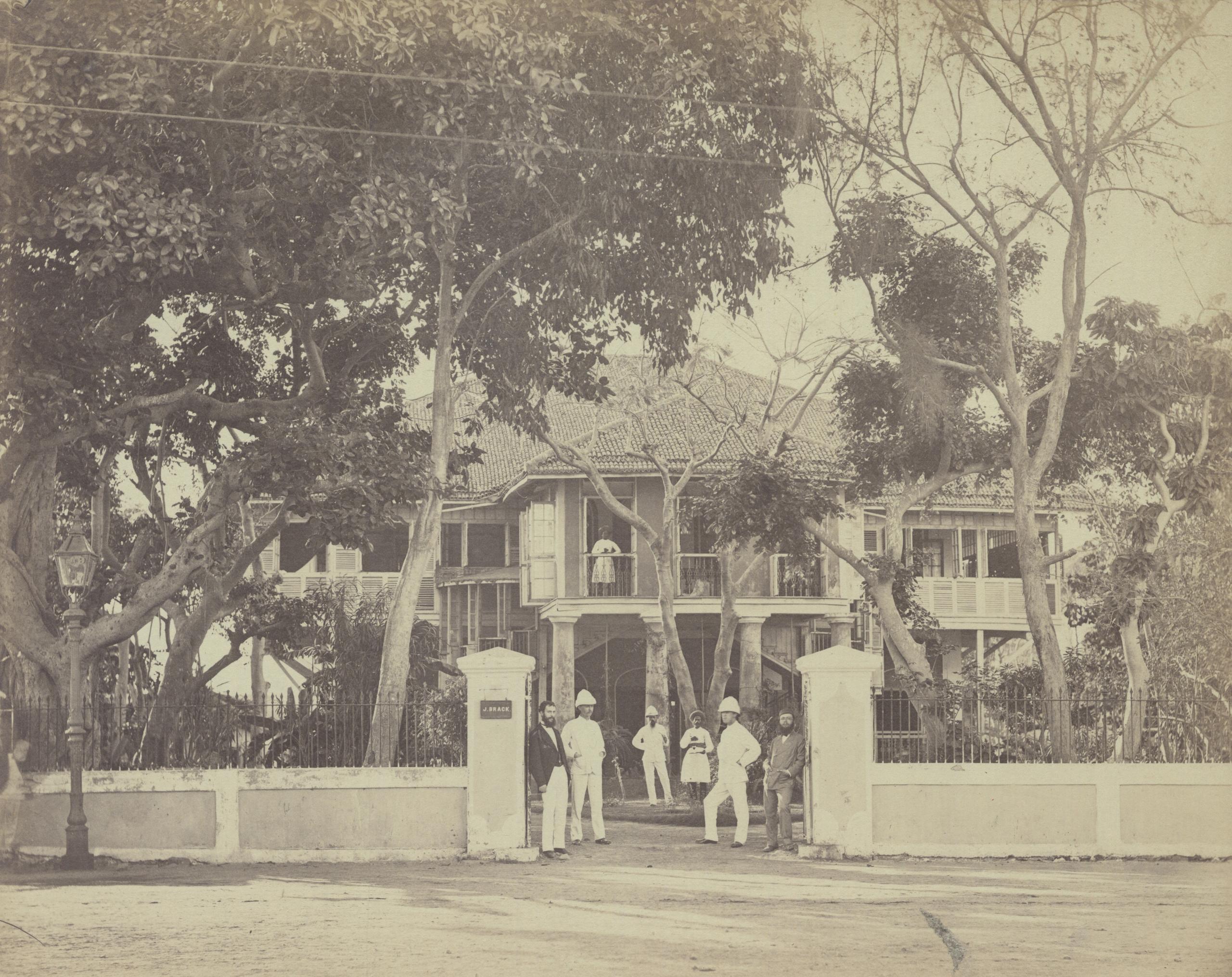
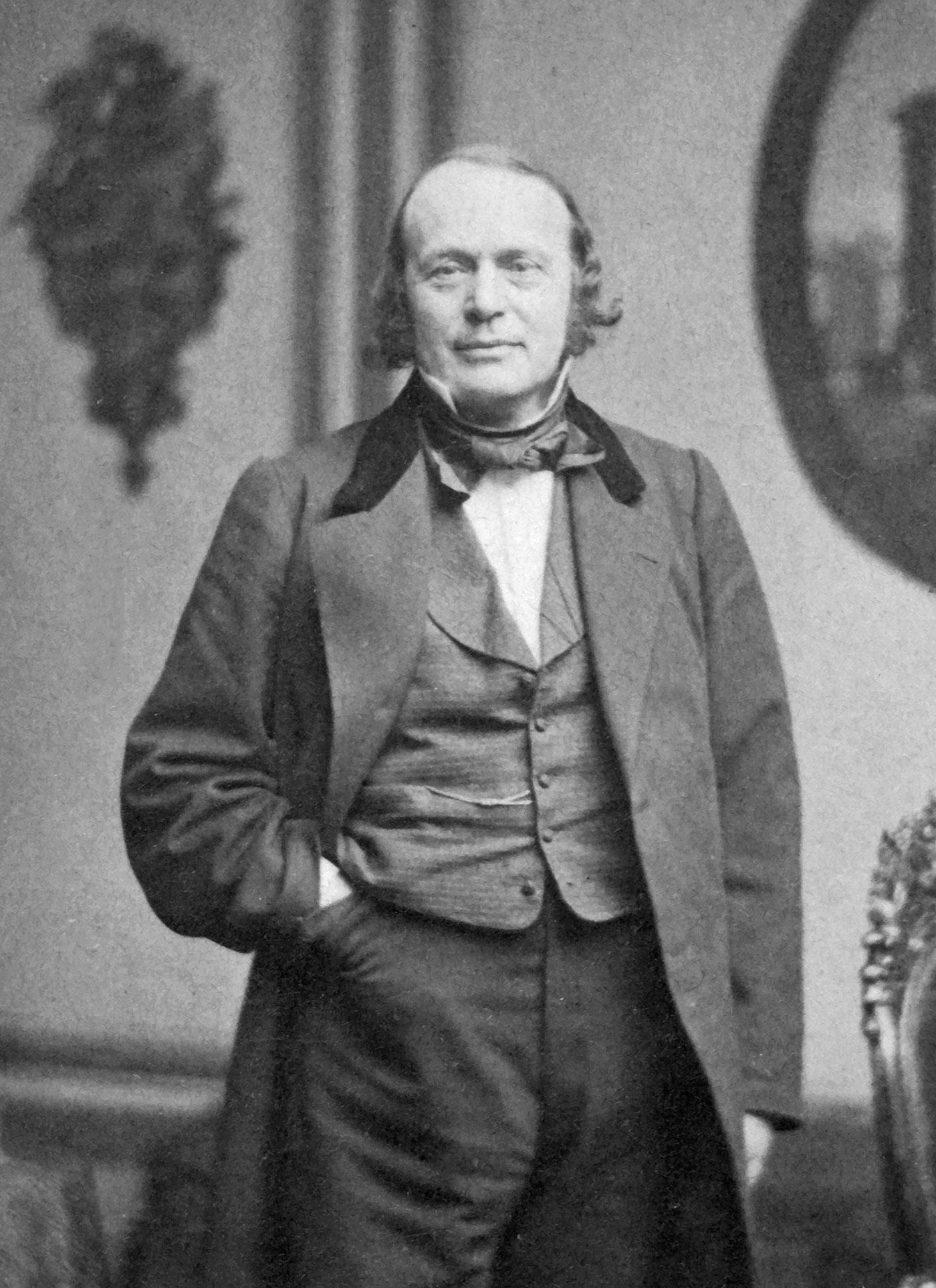

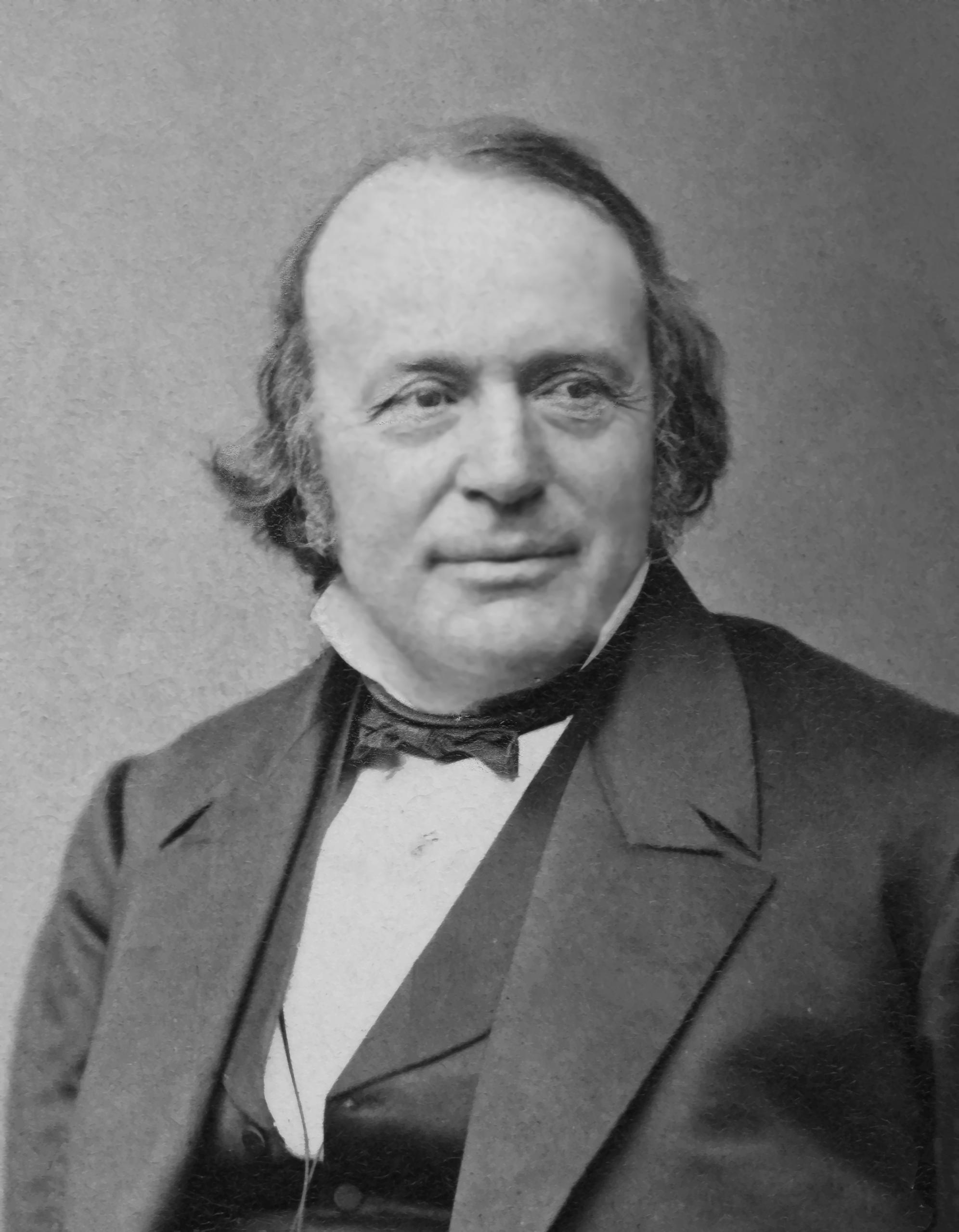

You can find an overview of ongoing debates with our journalists here . Please join us!
If you want to start a conversation about a topic raised in this article or want to report factual errors, email us at english@swissinfo.ch.